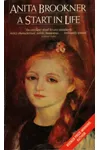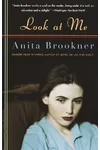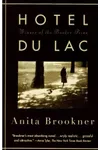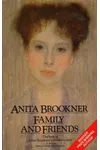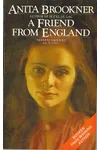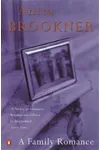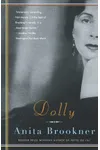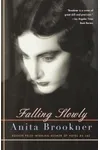Picture a British storyteller who turned solitude into literary gold—meet Anita Brookner! Born in 1928 in London, this art historian-turned-novelist didn’t pick up a pen for fiction until her 50s, yet she crafted over 20 novels with a precision that won her the prestigious Booker Prize. Known for her elegiac style, Brookner’s tales of lonely, introspective women resonate with readers who crave depth and quiet beauty.
Her work, often compared to Jane Austen’s witty comedies of manners, dives into the emotional undercurrents of middle-class life. With a knack for capturing the ache of unfulfilled dreams, Brookner’s novels are like a warm cup of tea on a rainy London afternoon—comforting, yet tinged with melancholy. Let’s explore her journey, from scholarly roots to literary stardom.
The Making of Anita Brookner
Anita Brookner was born to Polish Jewish immigrants in Herne Hill, London, in a household filled with books and music. Her father, a businessman, and her mother, a former singer, gave her a rich cultural upbringing, though their strained marriage left young Anita feeling like an outsider. She studied history at King’s College, London, and earned a PhD in art history at the Courtauld Institute, where she later taught. In 1967, she became the first woman to hold the Slade Professorship at Cambridge University, specializing in 18th- and 19th-century French art.
Brookner’s pivot to fiction came at 53, sparked by a restless summer. Her debut novel, A Start in Life (1981), was a bold leap, blending her academic precision with a keen eye for human nature. This late start proved no barrier—her prolific output and elegant prose soon made her a literary force.
Anita Brookner’s Unforgettable Stories
Brookner’s novels are intimate portraits of solitude, often centered on intellectual women navigating love and loss. Her fourth novel, Hotel du Lac (1984), won the Booker Prize, surprising many when it outshone J.G. Ballard’s Empire of the Sun. The story follows Edith Hope, a romance writer seeking solace in a Swiss hotel after a scandal, blending irony and emotional depth. Critics praised its “perfect artifice” and stellar prose.
Other gems include Look at Me (1983), where a lonely librarian grapples with her place in a glamorous couple’s world, and Latecomers (1988), which traces the lives of two Jewish Holocaust survivors in England. The Next Big Thing (2002), longlisted for the Booker, explores a retired man’s quiet reckoning with life’s possibilities. Brookner’s style—polished, psychological, and laced with wry humor—delves into themes of alienation, duty, and the search for meaning, often set against a vividly drawn London backdrop.
While some critics noted her thematic repetition, fans adored her exquisite prose and unflinching honesty. Her characters, often children of immigrants or of Jewish descent, reflect her own outsider perspective, making her work deeply personal yet universally relatable.
Why Anita Brookner Matters
Anita Brookner’s legacy lies in her ability to elevate the ordinary. Her novels, though quiet, speak loudly about the human condition, offering solace to those who feel unseen. She influenced a generation of writers by showing that small lives could hold profound stories. Her art historical work, including books on Watteau and Jacques-Louis David, remains a cornerstone of 18th- and 19th-century French art studies.
Brookner’s impact endures through her devoted readership and the timeless relevance of her themes. In a world that often glorifies the loud and flashy, her subtle storytelling reminds us to cherish the unspoken beauty in everyday struggles. She passed away in 2016 at 87, leaving a literary and scholarly mark that continues to inspire.
About Anita Brookner
- Born: July 16, 1928, in London, England
- Key Works: Hotel du Lac (1984), Look at Me (1983), Latecomers (1988), The Next Big Thing (2002)
- Awards: Booker Prize (1984), Commander of the British Empire (1990)
- Died: March 10, 2016
Ready to dive into Brookner’s world? Snag Hotel du Lac and savor her elegant, soul-stirring prose!
